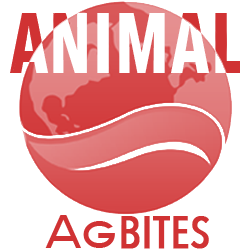 The U.S. Roundtable for Sustainable Poultry & Eggs and the International Poultry Welfare Alliance are conducting a search for an executive director who can provide management duties and leadership for both organizations as they develop and progress. The groups, with the assistance of the U.S. Poultry & Egg Association, are working with executive search firm Kincannon & Reed to fill this position by June.
The U.S. Roundtable for Sustainable Poultry & Eggs and the International Poultry Welfare Alliance are conducting a search for an executive director who can provide management duties and leadership for both organizations as they develop and progress. The groups, with the assistance of the U.S. Poultry & Egg Association, are working with executive search firm Kincannon & Reed to fill this position by June.- Mark Gale will share Charleston|Orwig’s research about consumer perspectives on food labels at the Animal Agriculture Alliance’s 2018 Stakeholders Summit set for May 3-4 at the Renaissance Capital View Hotel in Arlington, Va.
- The Pork Checkoff has awarded 21 scholarships to college students around the United States as part of its strategy to develop the pork industry’s future leaders. A National Pork Board committee judged the pool of 70 applicants based on scholastic merit, leadership activities, involvement in the pork production industry and the applicants’ plans for a career in pork production.
- The biotechnology company LEUKOCARE AG and Boehringer Ingelheim have entered into a license agreement in the field of veterinary diagnostics. Under the terms of this agreement, Boehringer Ingelheim will have access to LEUKOCARE’s SPS technologies.
- More than 20,000 individuals have gone online to obtain Beef Quality Assurance (BQA) certification since online training modules were relaunched on Feb. 1, 2017. BQA certifications are also available at in-person training events offered through state beef councils, cattlemen’s affiliates, extension programs and other local efforts throughout the country. The BQA program is funded by the Beef Checkoff Program.
- With strong support and input from the National Pork Producers Council, the United States and Argentina this week finalized an export certificate that allows the U.S. pork industry to ship product to the South American country. The new opening represents the first time in 25 years that U.S. pork will be allowed into Argentina, which has the potential to be a $10 million-a-year market for U.S. pork producers.
